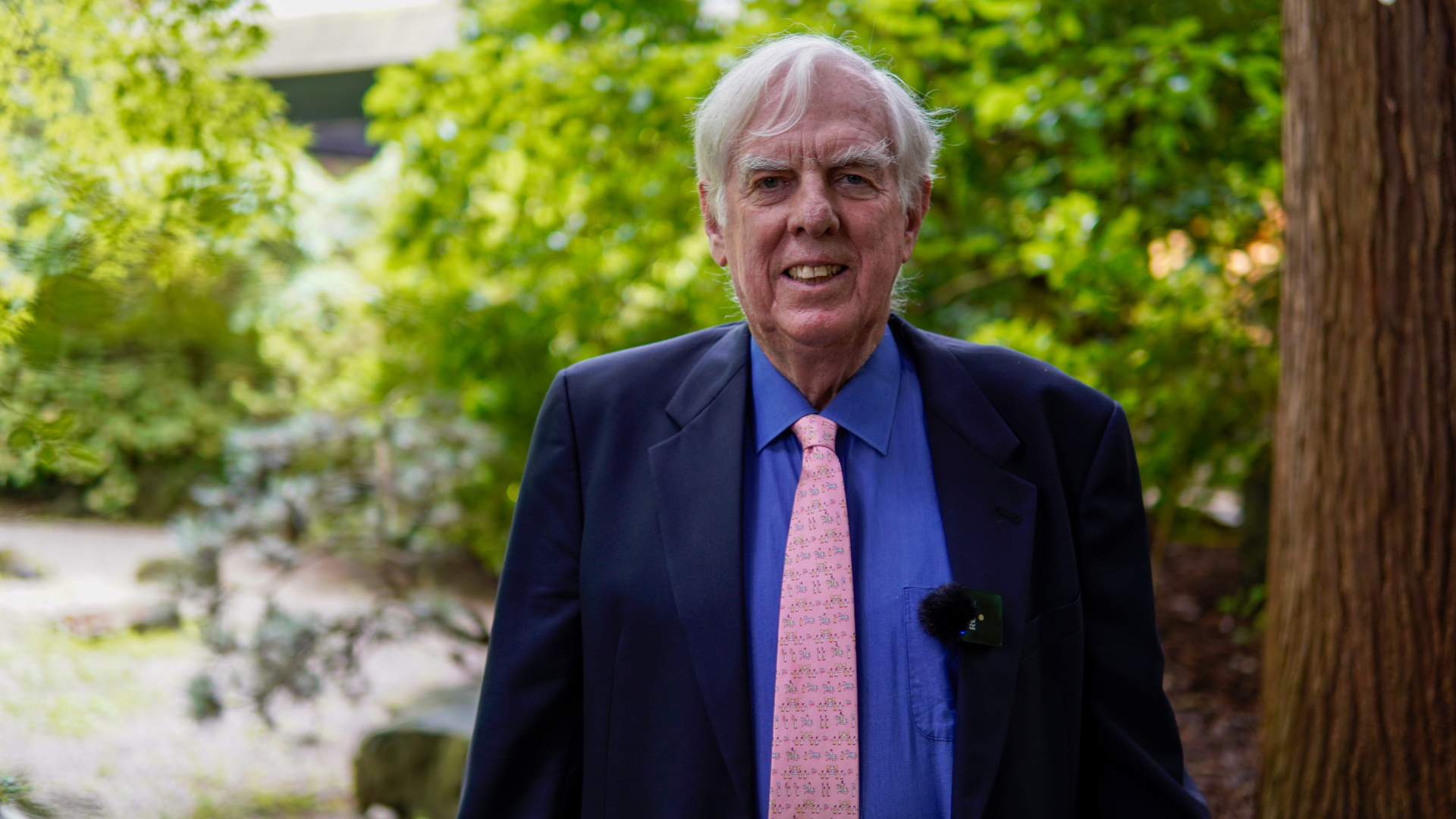

“As the only non-Korean historian of Korea in Kwangju in 1980, I have felt a special obligation to talk about what the people of that city suffered because of their desire for democracy.”
Donald Baker
Professor in Korean History and Civilization
Dr. Donald Baker has taught Korean History and Civilization in the Department of Asian Studies since 1987, and his research as a historian only continues to reach new heights.
In April 2022, Dr. Baker was named an Honorary Goodwill Ambassador in Canada for the Korea Democracy Foundation, a non-partisan agency of the Republic of Korea government. One of his most notable research efforts was to make the events of the 1980 Kwangju Uprising—where hundreds of civilians were attacked and murdered in a fight for democracy—a better-known piece in Korea’s historical canon. With only one Honorary Goodwill Ambassador named in each country, he alone holds this title.
Fascinated by the stepping stones that paved the way to this accomplishment, we asked Dr. Baker to share some of his experiences and insights as a historian with us.
This 6-part video interview reflects on Dr. Baker’s work and research throughout the late 20th century and discusses his aspirations as an academic and professor from the present onwards. Watch the full video on our YouTube channel.
Skip ahead to:
Can you explain to a non-expert what you research?
How and why did you start your journey in Asian Studies?
What was your experience of living in Korea as a foreigner in the early 1970s?
Did your experience of the Kwangju tragedy in May 1980 change your trajectory?
What change do you hope your work can make in the world?
What can students gain from your courses?
Can you explain to a non-expert what you research?
Today, Dr. Baker’s research is entrenched in examining Korea’s development since the 1800s, along with its persistence for independence and a unique cultural identity.
How and why did you start your journey in Asian Studies?
While he has been speaking Korean for over 50 years, Dr. Baker previously shared with us that he “got into Asian Studies by accident.” (See our earlier interview with him here)
A scholarship to study Chinese at the University of Hawaii later led him to spending three years in Kwangju, Korea working for the Peace Corps, which ignited his love for the country and its history. Soon after, he completed his PhD in Korean History at the University of Washington.
What was your experience of living in Korea as a foreigner in the early 1970s?
“I loved it so much I decided I was going to study Korea for the rest of my life.”
Dr. Donald Baker
While Dr. Baker was no stranger to culture shock, he marks his time in the Peace Corps as a turning point in his life, highlighting the path his career took upon returning to North America and the international friendships he still maintains today.
Did your experience of the Kwangju tragedy in May 1980 change your trajectory?
Tragedy struck Kwangju in May 1980 when the South Korean military attacked the city due to local students protesting the military coup occurring at the time. During this 10-day call for democracy, hundreds of civilians were killed.
Dr. Baker was able to sneak into the city and witnessed the events of the Kwangju Uprising firsthand. While he had originally focused his studies on Korea before the 20th century, witnessing this terrible history unfold before his own eyes soon changed that. Upon departing from Kwangju once more, he made two promises to himself that would determine the course of much of his work.
And while the Kwangju Uprising was suppressed, it carried seeds that would lead to the end of South Korea’s dictatorship in 1987.
What change do you hope your work can make in the world?
While Korea has often been overlooked in history—either by the stereotype of a monolithic Asia or when being reduced to a few key cultural significances—Dr. Baker sees the country as a prime role model for developing countries in two ways.
What can students gain from your courses?
Dr. Baker will be teaching two courses in the W2022/23 session:
ASIA 317: Rise of Korean Civilization
ASIA 337: The Korean People in Modern Times
In his courses, Dr. Baker highlights the wealth of knowledge and accomplishments that all budding historians can find when examining Korea’s past. Students can look forward to his excitement and admiration for the country’s rich history every fall.


